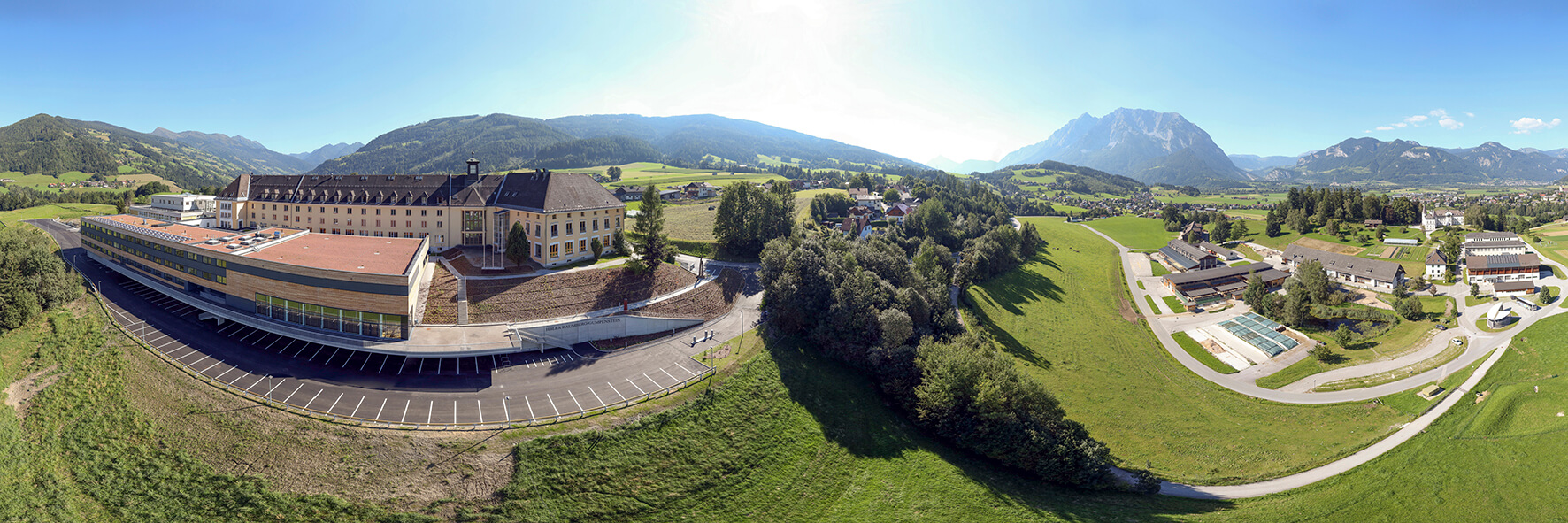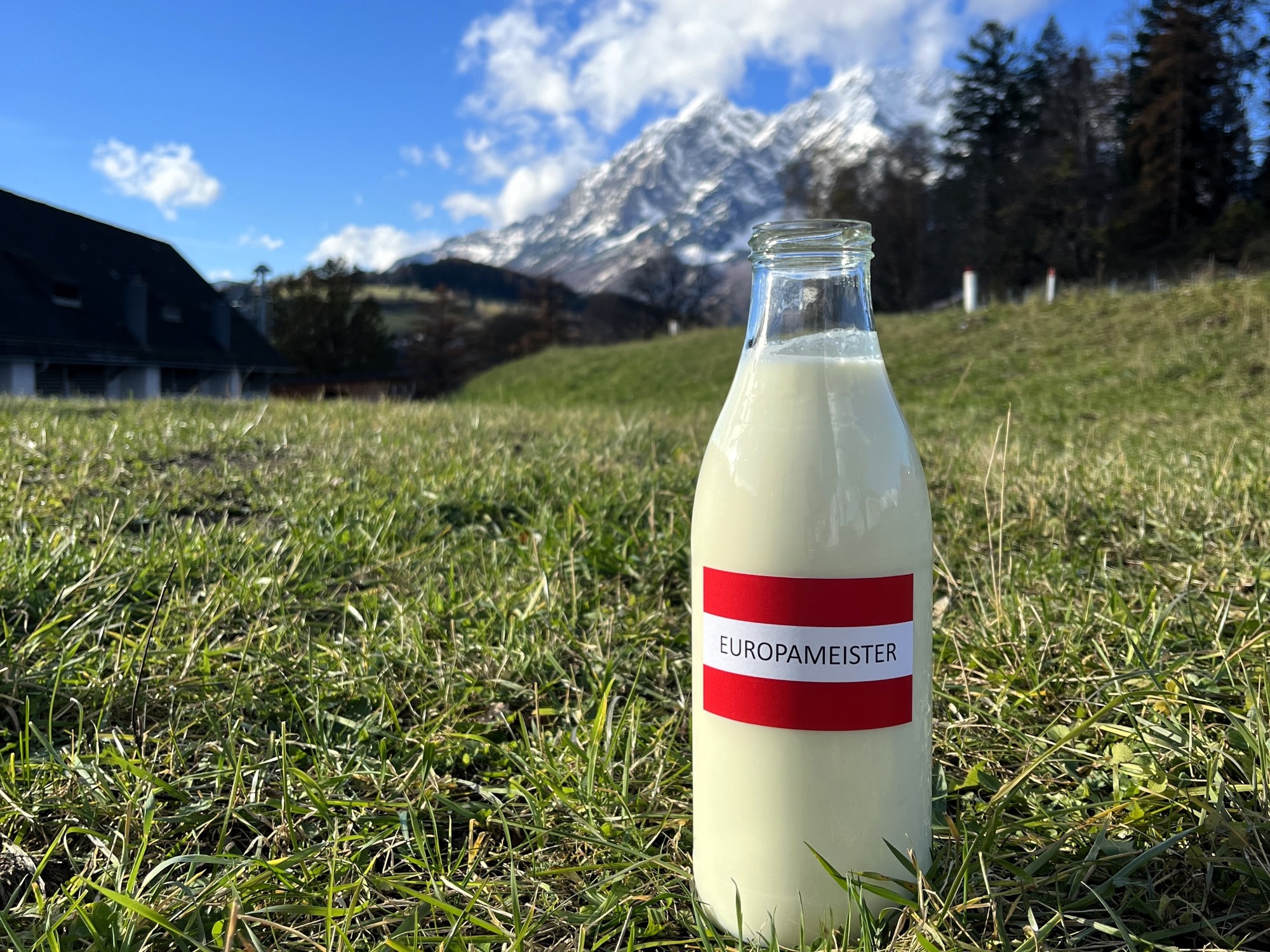The data from the representative sample for Austria could be converted into a national forecast model . applied to 23,418 dairy farms in Austria using INVEKOS data (area, animals, milk delivery volume and management) .
The resulting data distributions of 14 environmental impacts, when classified in international literature, show that milk from Austria can often be produced with low or very low environmental impacts per kg of milk (FPCM). This applies especially to European sources, which is why the rating “European champion” was pronounced.
The reasons for the good performance are the good grassland location , suitable breeds , adapted performance targets , independent breeding of cattle , avoidance of inputs with a large ecological backpack , a high proportion of extensive land use and a very precise distribution of effects in the initial data.
Just listen or watch:
In a podcast conversation with Priv.-Doz. Dr. Andreas Steinwidder and Dr. Thomas Guggenberger you can hear more about the method and the interpretation of the results.









